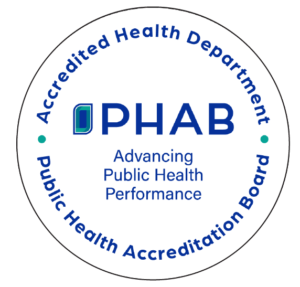What is E. coli Infection?
E. coli (Escherichia coli) is a kind of bacteria (germ). There are many different types of E. coli that normally live in the intestines of healthy people. E. coli 0157:H7 is a type of E. coli that can cause terrible illness.
How is E. coli spread?
People get E. coli infection from eating meat, especially ground beef, that has not been cooked well enough. Meat that is contaminated with E. coli bacteria (meat that has E coli bacteria in it) looks and smells normal. E. coli has also been found in sprouts, lettuce, salami, unpasteurized milk and juice, and in swimming pools and some drinking water. If a person does not wash their hands well after using the bathroom, they can spread the bacteria when they prepare food.
What are the symptoms of E. coli Infection?
The symptoms are sometimes bloody diarrhea (loose stool) and stomach cramps. Some people have no symptoms. The person usually gets better in five to 10 days. Children under five years old and the elderly sometimes have a complication (problem caused by the disease) called hemolytic uremic syndrome, where their Red Blood Cells die and their kidneys fail (stop working).
How do I know that I have E. coli Infection?
The doctor will order a specific laboratory test for your stool sample.
What is the treatment (cure) for E. coli Infection?
Most people get better without needing to take antibiotics. You should also NOT take medicines for diarrhea. Hemolytic uremic syndrome is very serious and the person will have to stay in the hospital. Three to five percent of people (three to five people out of 100) who receive intensive care in the hospital will die of hemolytic uremic syndrome.
Are there any long-term problems from E. coli Infection?
Most people with E. coli get completely better. One out of three people who had hemolytic uremic syndrome have problems with their kidneys and need long-term kidney dialysis. Another eight out of 100 people who had hemolytic uremic syndrome have high blood pressure, seizures, blindness, paralysis (parts of their body will not move), and the effects of having part of their intestine removed.
What can I do to stop from getting E. coli Infection?
- Cook all ground beef and hamburger well. Use a food thermometer to make sure the thickest part of the meat reads 160oF. If you do not have a thermometer, do not eat ground beef or hamburgers that are still pink in the middle.
- If you go to a restaurant and they give you meat that is not cooked well, send it back to be cooked some more. You may want to ask for a new bun and a clean plate, too.
- In your kitchen, keep raw meat away from ready-to-eat foods. Wash your hands, counter tops, and cooking utensils (knives, forks, spoons, spatula, etc.) with hot, soapy water before and after you touch raw meat. Do not put cooked meat on a plate that held raw meat. Wash the thermometer in between testing meats.
- Drink only pasteurized milk, juice or cider. Juice in cardboard boxes and vacuum-sealed juice in glass containers has been pasteurized, although it does not normally say so on the label. Juice concentrates are also heated enough to kill bacteria.
- Wash fruits and vegetables well, especially when they will be eaten raw. Avoid eating alfalfa sprouts.
- Drink municipal water that has been treated with chlorine or other chemicals that kill bacteria.
- Do not swallow lake or pool water while swimming.
- Make sure that people with diarrhea wash their hands carefully after they use the bathroom. Wash your hands after changing dirty diapers. Do not swim, share a bath, or prepare food for others if you have diarrhea.

